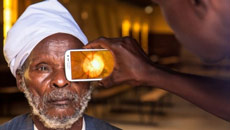Secret to stopping a war could lie in following a basic instinct - having sex - as scientists have for the first time discovered that the brain cells mediating attack behaviour and sexual desires are "intimately associated” and “deeply intertwined".
Sex and violence could actually be at odds as the researchers found that a neuron that is turned on during aggressive behaviour would turn off during mating, and vice versa.
"We found that they talk to each other in an inhibitory way," said David Anderson, professor at California Institute of Technology in the US.
It is possible to switch the behaviour of a mouse from ‘sniffing and mounting’ to attacking by increasing how strongly the neurons were stimulated, the scientists discovered.
Indeed, the neurons for violence and mating live so close together, in a brain region known as the ventrolateral subdivision of the ventromedial hypothalamus (VMH), that "they are like a salt-and-pepper mixture", Anderson said.
"We have found that these 'mating' and 'fighting' neurons are not only located in the same city, but potentially in the same neighbourhood," he added.
With the help of a new genetic tool called optogenetics that uses light to turn nerve cells on and off, the researchers tracked down the specific location of the neurons that elicit attack behaviours in mice, and defined the relationship of those cells to the brain circuits that play a key role in mating behaviours.
When the neurons were strongly activated by pulses of light a male mouse attacked another male or female, discovered the scientists.
However, weaker activation of the same neurons triggered ‘sniffing and mounting’, or mating behaviours.
Because the human brain contains a hypothalamus that is structurally similar to that in the mouse, these results may be relevant to human behaviour too, reported Daily Mail.
The study appeared in the journal Nature.






